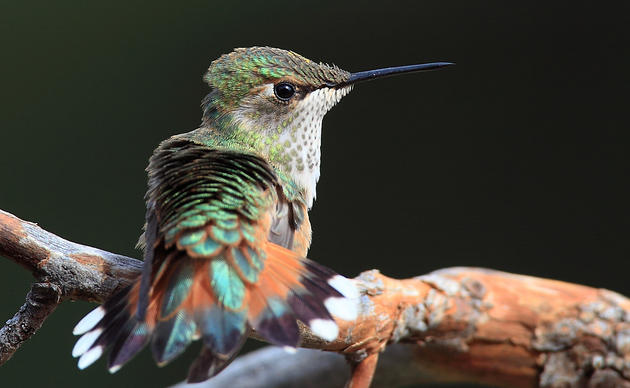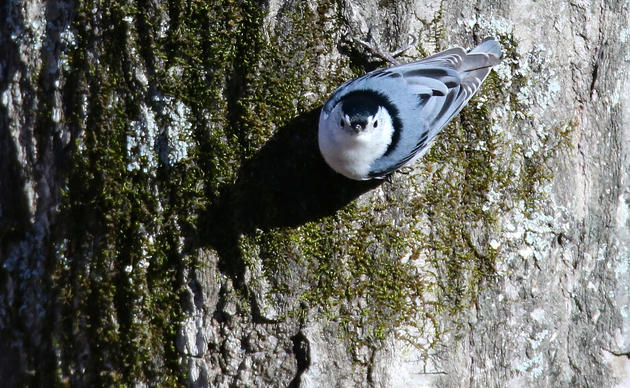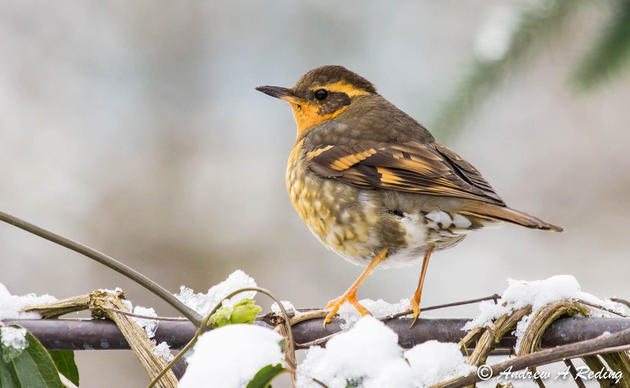Sagebrush landscapes are vulnerable to catastrophic wildfires and can take decades to recover, especially if invasive cheatgrass becomes established. This puts birds like Mountain Bluebirds and Sagebrush Sparrows at risk. In Washington State, 85 percent of wildlfires are caused by people. Follow these firewise tips to stay safe and prevent fire on your next birding trip.
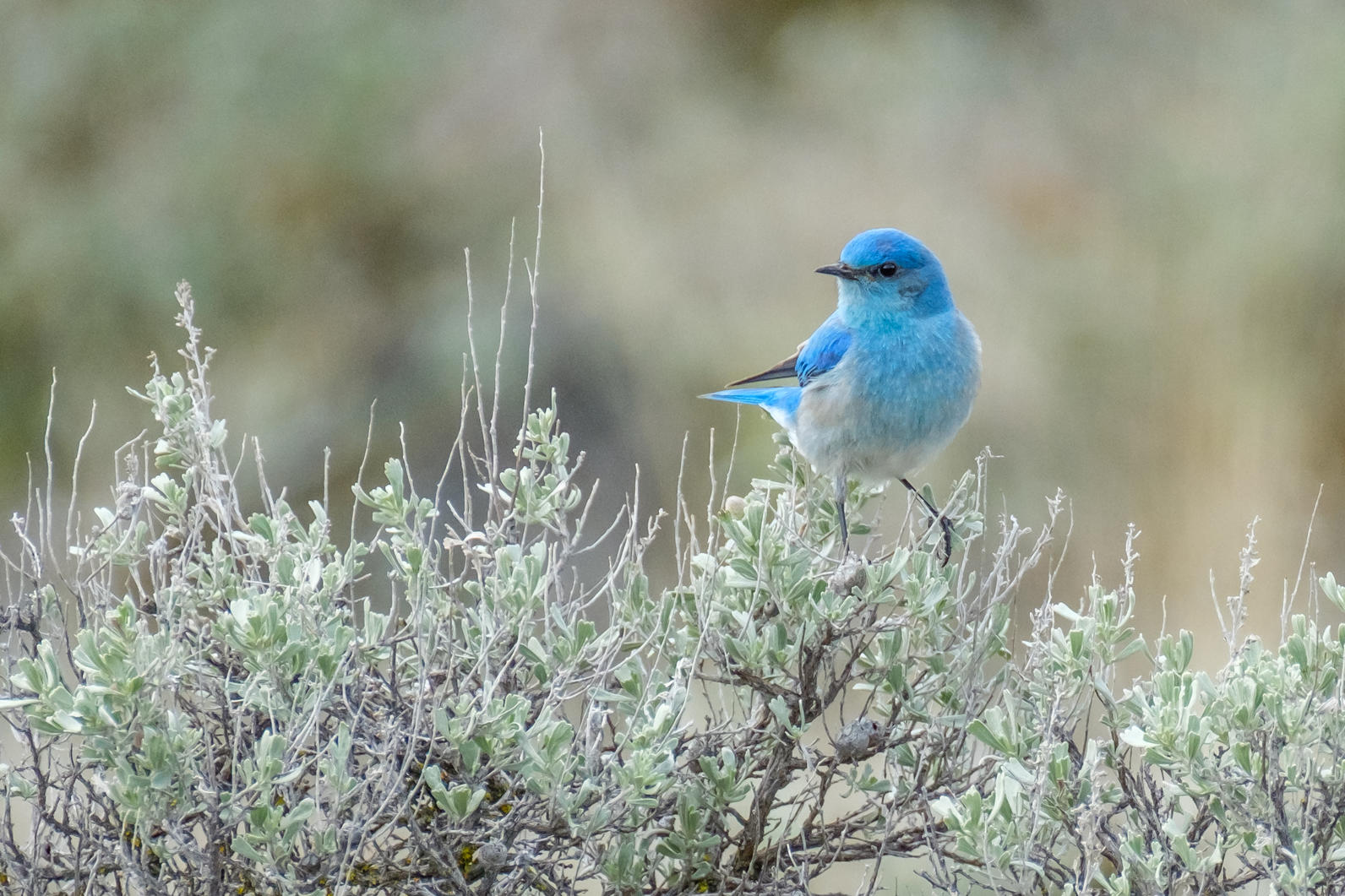
1. Know before you go.
Check InciWeb - Incident Information System or follow @waDNR_fire on Twitter to make sure no fires are burning where you want to bird, and research burning bans, trail closures & road restrictions. Lands managed by the Bureau of Land Management or other agencies may have special restrictions, so be sure to check for instructions or BLM road closures on their website.
2. Report wildfire immediately.
Call 911 or the Department of Natural Resources 1-800-562-6010 as soon as possible so they can respond faster and prevent small fires from spreading.
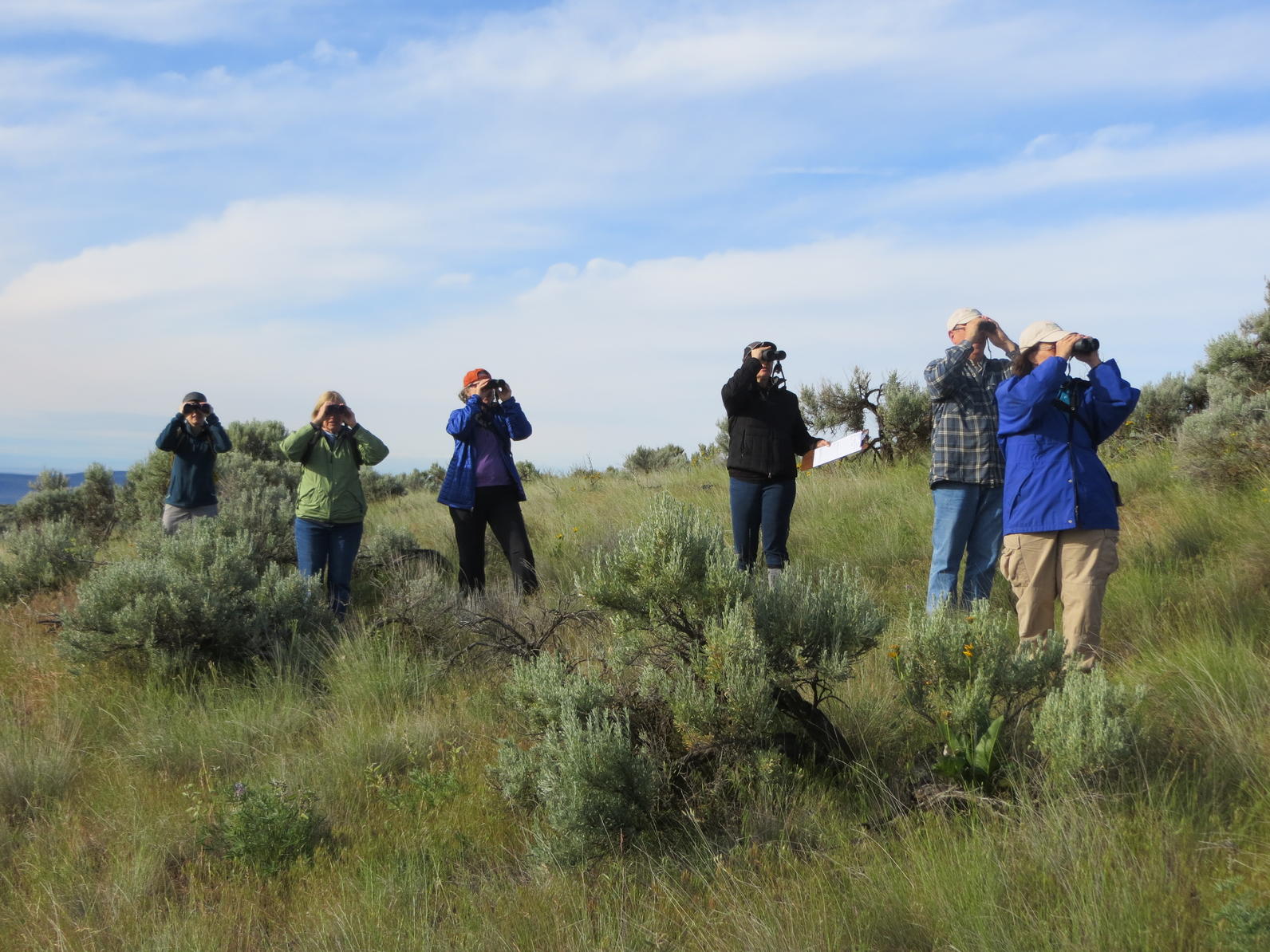
“A spectacular lightning bolt flashed in front of us and thanks to our calling in the fire so fast, firefighters were able to put it out with only 5 acres of beautiful sagebrush burned.“ -Sagebrush Songbird Survey Volunteer
3. Drive and park within road shoulders.
Exhaust systems can ignite dry vegetation, so do not drive or park over roadside grass.
4. Keep a fire extinguisher and shovel in your car.
Wildfire can move fast. Be prepared with emergency supplies and know how to use them.
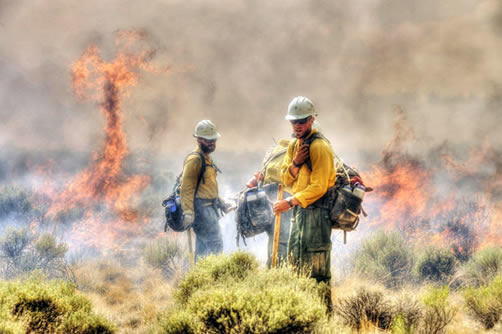
5. Don’t spread fire fuels.
The establishment of invasive Cheatgrass, nicknamed “grass-oline” for its flammable qualities, can more than double the occurance of wildfire in our Sagebrush Steppe landscapes. Wash seeds from car tires and remove them from clothing and pets to reduce the spread of these fire fuels.
Donate to Audubon
Help secure the future for birds at risk from climate change, habitat loss and other threats. Your support will power our science, education, advocacy and on-the-ground conservation efforts.

